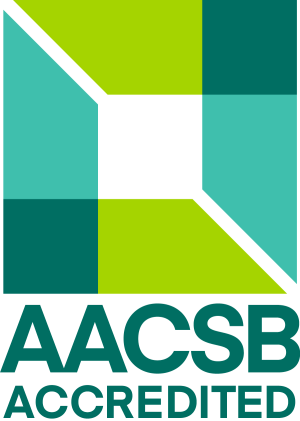
Key information
For:
starting September 2026
Accreditation:
This course is Accredited
Typical offer:
104-112 points from 3 A levels, or equivalent
Showing content for section Overview
Overview
Whether you're already in employment or looking to start your career, this degree apprenticeship can help you develop your management skills, boost your job prospects and earn a degree whilst working full time.
The Chartered Manager degree apprenticeship scheme was developed by the Government, business leaders, universities and the Chartered Management Institute (CMI) in response to a critical shortage of qualified managers. It is a nationally recognised qualification. The Government or your employer pay your tuition fees – it doesn’t cost you anything other than hard work.
This 3-year degree apprenticeship is suitable for anyone over 18, whether you've already established your career and want to consolidate your work experience with management education, or you’ve just finished college and are taking your first step into professional employment.
You'll learn professional management and leadership principles and develop your skills in areas such as business accounting, marketing, managing and leading a team and business strategy. You'll get to apply the skills you learn on the degree to your job and share your new knowledge with colleagues, contributing to the success of your employer.
At the end of the course, you'll have a BA (Hons) Business Leadership and Management degree and full level 6 apprenticeship certification. Every successful apprentice is granted Chartered Manager status without additional assessment, as the requirements are built into the end point assessment. You'll also be expected to receive a Chartered Management Institute (CMI) level 5 qualification.
To do this degree, you need to have full support from your current employer, or you can apply to work for an employer looking to recruit degree apprentices.
How you study will depend on your employer. You might study completely online, or do a combination of distance learning and campus-based learning.
Course highlights
- Balance a full-time job with studying for a degree
- Learn to lead and manage people, projects, operations and services that are essential to the UK’s future
- Get Affiliate Membership of the Chartered Management Institute (CMI) when you start your degree, paid for by us. You’ll access the CMI's resource portal, packed with useful articles and scenarios
- Fuse your education with your experience, applying what you learn to your job
- Apply your newly gained knowledge to solve work-based problems for your employer
- Get a personal tutor from the University and a workplace mentor
- Build a network of professional peers during your time at university
- Have full access to the University's student support services and community including the Library, study support, sports and recreation facilities, and the Students’ Union
- Have the chance to showcase your ideas to your employer, peers and tutors at the Annual Business Conference



95%
overall student satisfaction for our BA (Hons) Business Leadership and Management Degree Apprenticeship course
NSS, 2022
Top 30
for student satisfaction
(Times Higher Education, 2024)
Accreditation
This course is an accredited Chartered Management Institute level 5 diploma.
The University of Portsmouth has earned business accreditation from the AACSB in recognition of the outstanding quality of its business and management education. Less than six percent of the world's schools offering business degree programs hold AACSB business accreditation.
Contact information
Contact Degree ApprenticeshipsEntry requirements
BA (Hons) Business Leadership and Management (Degree Apprenticeship) degree entry requirements
Typical offers
- A levels - BBC-BCC
- UCAS points - 104-112 points from 3 A levels, or equivalent. Applicants with relevant work experience will also be considered (calculate your UCAS points)
- Applicants aged 16-18 must have acceptable Level 2 qualifications in English and Maths, such as GCSE with grade C/4 or above or Functional Skills. If you do not have acceptable qualifications, you will be required to obtain this. Those aged 19 and over are only subject to these requirements if you or your employer choose for you to study towards English and Maths qualifications, which will be funded. Please note that you may still be required to evidence accepted Level 2 qualifications for the course, as part of academic assessment.
- T-levels - Merit
- BTECs (Extended Diplomas) - DMM
- International Baccalaureate - 27
Selection process
All applicants will be required to complete a Skills Gap Analysis before completing an application form.
All applicants will be invited to attend an academic interview and may be asked to submit a portfolio of work or undertake additional assessment.
You may need to have studied specific subjects or GCSEs - see full entry requirements and other qualifications we accept.
We look at more than just your grades
While we consider your grades when making an offer, we also carefully look at your circumstances and other factors to assess your potential. These include whether you live and work in the region and your personal and family circumstances which we assess using established data.
You and your employer
When you begin studying for your degree apprenticeship:
- You need to be 18 or over
- You should be able to satisfy government requirements on residency:
- you must be a citizen or have the right to live in the UK/EEA
- you must have been a resident in the UK/EEA (not the Channel Islands or Isle of Man) for a minimum of 3 years
- you must not need a Student Route visa, and must not have been on a Student Route visa within the past 3 years
- You need to have the right to work in the UK, and to spend at least 50% of your working hours in England
- Your job should meet the requirements of the apprenticeship standard relevant to this degree – we can advise you and your employer on this
- Your employer needs to have registered an apprentice service account – we can help your employer with this if needed
If you aren't currently working in a relevant field, you can apply for a job and degree apprenticeship simultaneously. Read more about applying for this degree apprenticeship.
The programme has filled me with so much confidence, it has changed me professionally and personally. I feel more equipped to do my job, with a toolbox of modern management techniques and leadership approaches.
Careers and opportunities
This degree apprenticeship will ignite your ambition and give you the professional qualifications and practical experience you need to advance in your managerial career.
When you successfully complete your degree apprenticeship, you'll be eligible to apply for Chartered Management status (CMgr) with the Chartered Management Institute (CMI).
You'll also be eligible to apply to study the MBA Strategic Leadership degree apprenticeship with us.
After you finish your apprenticeship, you can get help, advice and support for up to 5 years from our Careers and Employability service as you advance in your career.
Work experience and career planning
To give you the best chance of securing a great job when you graduate our Careers and Employability service can help you find relevant work experience during your course.
We can help you identify placements, internships and voluntary opportunities that will complement your studies and build links with employers at home and abroad.
Why do a business management degree?
Read our blog to find out why a business management degree is a good idea and how it opens doors to lots of different careers.
Modules
Each module on this course is worth a certain number of credits.
In each year, you need to study modules worth a total of 120 credits. For example, four modules worth 20 credits and one module worth 40 credits.
What you'll study
Core modules
You'll discover techniques to construct and adapt robust plans that navigate organisational dynamics and stakeholder interests. Refine your people skills as you analyse team structures and mitigate risks, and compare approaches to transform objectives into realities.
This module prepares you to become an adept project manager ready to deliver projects amid complexity.
Core modules
Core modules

The course fits well with my diverse role in the company as Office Manager and allows particular focus on your personal and professional development by pulling you out of your comfort zone. I continue to learn and I am most of all please that the transfer and impact can be seen at work by my managers and my mentor.
Changes to course content
We use the best and most current research and professional practice alongside feedback from our students to make sure course content is relevant to your future career or further studies.
Therefore, some course content may change over time to reflect changes in the discipline or industry. If a module doesn't run, we'll let you know as soon as possible and help you choose an alternative module.
How you'll spend your time
How you study for your degree will depend on your employer. You'll likely attend the University on day release for 1 day every other week during term time. You'll do follow-up work by yourself when away from the University with support from our Virtual Learning Environment: Moodle.
Occasionally, we run customised versions of the course with specific employers, which aren't available to all applicants. This could involve study via distance learning with the support of Moodle or a combination of online study with block release (4-day periods of intense study on campus).
Teaching
On-campus teaching methods on this course include:
- lectures
- workshops
- seminars
- tutorials
How you're assessed
You’ll be assessed through:
- individual and group work
- presentations
- reports
- essays
- academic posters
- online video casts
- a professional development portfolio
You’ll be able to test your skills and knowledge informally before you do assessments that count towards your final mark.
You can get feedback on all practice and formal assessments so you can improve in the future.

As a mature student, it provided the perfect chance to develop myself professionally and personally whilst maintaining a standard of living for my family. The support network is all in place to help someone like me who's been out of formal education for a number of years.
Supporting you
Types of support
You'll have help from a team of study support tutors. Based within the Faculty of Business and Law, these tutors are familiar with the specific requirements your assignments and work closely with faculty academics. This means they can give you focused support with the specific study skills you need to be successful on your course – face-to-face, by phone and email, and by video call.
They can help with:
- Academic writing (for example, essays, reports, dissertations, projects and literature reviews)
- Reflective writing skills
- Critical thinking skills
- Delivering presentations (including observing and filming presentations)
- Understanding and using assignment feedback
- Managing your time and workload
- Revision and exam techniques
If you're a mature student returning to study, specialist support is available.
During term time, Faculty Academic Skills Tutors (AST) are available for bookable 1-to-1 sessions, small group sessions and online sessions. These sessions are tailored to your needs.
Support is available for skills including:
- University study
- Getting into the right study mindset
- Note-taking and note-making skills
- Referencing
- Presentation skills
- Time management, planning, and goal setting
- Critical thinking
- Avoiding plagiarism
If you have a disability or need extra support, our Disability Advice team will give you help, support and advice.
As an Affiliate Member of the CMI, you will have access to Management Direct – CMI’s on-line resource tool. This is packed with resources and support such as leader videos, interactive scenarios, published articles, e-journals and summaries on key business initiatives.
Course costs and funding
Tuition fees
The payment of the course fee is shared between the Government and some employers, meaning no cost to you as the degree apprentice. Total tuition fees are £22,000 paid over 3 years.
Please see our Degree Apprenticeships page, or contact us, for further information.
Additional course costs
These course-related costs aren’t included in the tuition fees. So you’ll need to budget for them when you plan your spending.
Additional costs
Our accommodation section show your accommodation options and highlight how much it costs to live in Portsmouth.
You’ll study up to 6 modules a year. You may have to read several recommended books or textbooks for each module.
You can borrow most of these from the Library. If you buy these, they may cost up to £60 each.
We recommend that you budget around £40 a year for photocopying, printing charges, binding and specialist printing - while we try to keep files and content electronic, there may be some paper and printing to be undertaken.
If your final year includes a major project, there could be cost for transport or accommodation related to your research activities. The amount will depend on the project you choose.
Apply
Application deadline
The application deadline to start in September 2026 is to be confirmed by the Degree Apprenticeships team.
Applications received after this date may not be considered.
How you apply depends on whether you’re currently employed or not.
How to apply
You can apply to do a degree apprenticeship with your current employer, or a new employer if you're not employed full-time.
If you’re in full-time employment and would like to do a degree apprenticeship with your current employer, ask them to contact us so we can discuss with them how we can work together.
You might find it useful to share our information for employers page with them.
If you’re not employed full-time or not working for a company that can fund and support your degree apprenticeship, you'll need to apply for a degree apprenticeship with a company that offers them.
You'll follow their standard recruitment process and we'll assess your academic suitability for the course once you've applied.
We can let you know when there are degree apprenticeship vacancies available with companies we work with – contact us to give us your details.
If you have questions about degree apprenticeships, please get in touch with us.
Admissions terms and conditions
When you accept an offer to study at the University of Portsmouth, you also agree to abide by our Student Contract (which includes the University's relevant policies, rules and regulations). You should read and consider these before you apply.
